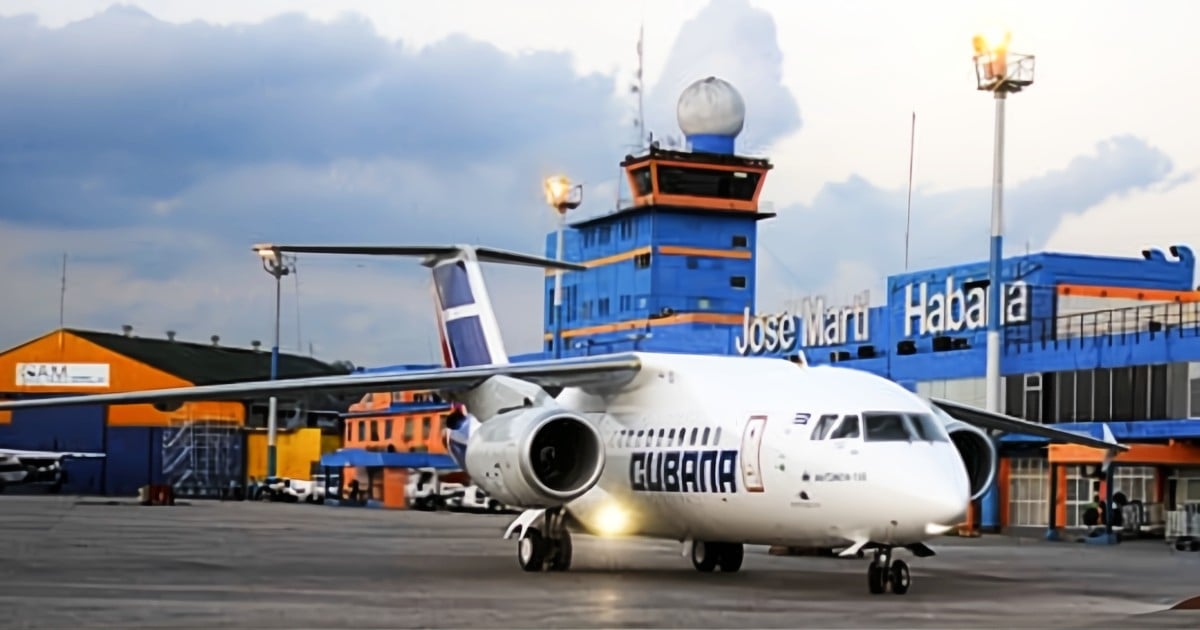
The JET-A1 fuel crisis in Cuba has begun to severely impact the international airports in Havana and Varadero, according to the operations management of ECASA.
Authorities have warned that the shortage will affect flights between December 1 and December 8, with a possible extension "until further notice."
International airlines, particularly those operating flights to Russia and Canada, have issued alerts to their passengers, anticipating delays, rescheduling, or cancellations.
In this context, the Russian Embassy in Cuba urged tourists to keep in constant contact with their tour operators due to the prevailing uncertainty.
JET-A1 aviation fuel is a highly refined type of kerosene, specifically designed for use in aviation turbine engines.
Its composition allows it to maintain optimal performance across a wide range of temperatures and altitudes, making it the preferred fuel for commercial and military aviation worldwide.
Characteristics of JET-A1
- Low freezing point:JET-A1 has a freezing point of -47 °C, allowing its use on high-altitude flights without the risk of solidification.
- High thermal stability:It withstands high temperatures without breaking down, ensuring efficient operation of the engines.
- Low sulfur content:It reduces harmful emissions and extends the lifespan of the engine components.
JET-A1 is essential for the operations of commercial airlines and military aviation activities.
Replacing JET-A1 aviation fuel with another type of fuel available in Cuba is extremely difficult due to the specific technical characteristics required by modern aviation.
Commercial aircraft jet engines are specifically designed to operate with fuels that meet strict international standards.
Shortage of JET-A1 in Cuba
Cuba obtains JET-A1 aviation fuel primarily through international imports, with Venezuela and Russia as its main suppliers due to bilateral agreements.
However, the economic crisis in Venezuela and international sanctions have significantly impacted the supply.
Although the island has refineries such as those in Cienfuegos and Santiago de Cuba, they do not produce JET-A1 in sufficient quantities, focusing instead on basic fuels like gasoline and diesel.
The dependence on donations, such as those received from Mexico, and the difficulty in acquiring fuel in the global market due to a lack of foreign currency have exacerbated the energy crisis, severely impacting airport operations and international flights.
Conclusion
The energy crisis in Cuba, evident in the shortage of JET-A1 aviation fuel, is severely affecting not only the aviation sector but also tourism, one of the country's economic pillars.
The reduction of international flights due to a fuel shortage coincides with the peak tourist season, resulting in a decline in the arrival of visitors, particularly from Canada, the leading source market.
Additionally, frequent blackouts and inadequate basic services in hotels have led to massive cancellations of bookings by international tourism companies, impacting Cuba's image as a reliable destination.
This critical situation, which also impacts the electricity supply and other strategic sectors, threatens to worsen the already precarious Cuban economy.
Without immediate structural solutions to stabilize fuel supply and ensure basic services for tourists and industries, Cuba faces a prolonged negative impact on its tourism revenue.
Frequently Asked Questions about the JET-A1 Aviation Fuel Shortage in Cuba
What is JET-A1 aviation fuel and why is it important?
The JET-A1 aviation fuel is a highly refined type of kerosene, specifically designed for use in aviation turbine engines. Its composition allows for optimal performance at various temperatures and altitudes, making it essential for commercial and military airline operations worldwide.
What is the main cause of the JET-A1 shortage in Cuba?
The shortage of JET-A1 in Cuba is due to the economic crisis and international sanctions that have impacted the supply, primarily from suppliers like Venezuela and Russia. Refineries in Cuba do not produce this type of fuel in sufficient volumes, which exacerbates the situation.
How does the shortage of JET-A1 affect international flights in Cuba?
The shortage of JET-A1 fuel is causing delays, rescheduling, and potential cancellations of international flights from the airports in Havana and Varadero. International airlines have issued alerts to their passengers, particularly those traveling to or from Canada and Russia, which are significant tourism markets for the island.
What impact does the fuel crisis have on tourism in Cuba?
The fuel shortage, along with frequent power outages, severely impacts tourism in Cuba. The reduction in flights coincides with the peak tourist season, leading to a decrease in visitor arrivals and resulting in mass cancellations of hotel reservations, which further tarnishes Cuba's image as a reliable destination.
What solutions are being considered to address the energy crisis in Cuba?
Although some alternatives have been mentioned to alleviate the crisis, such as the use of backup generators in hotels, immediate structural solutions appear to be limited due to a lack of foreign currency and dependence on imports. Without significant changes, the situation could continue to negatively impact the Cuban economy.
Filed under: